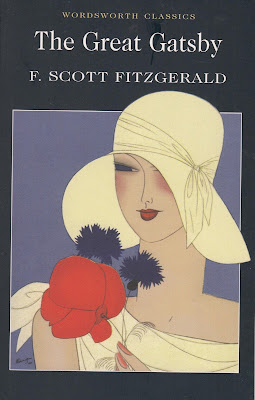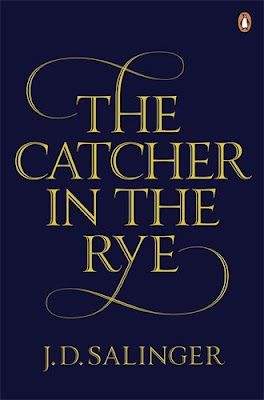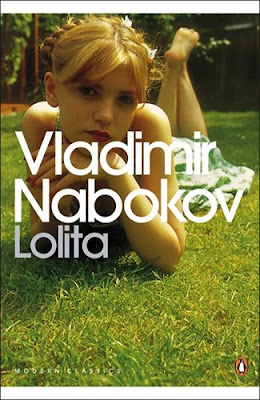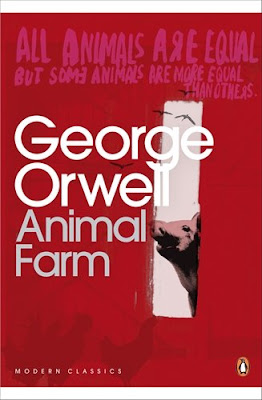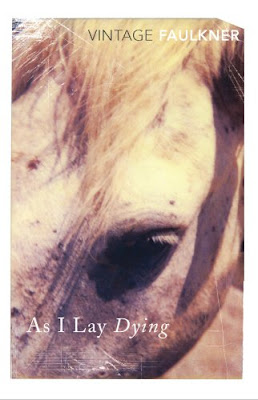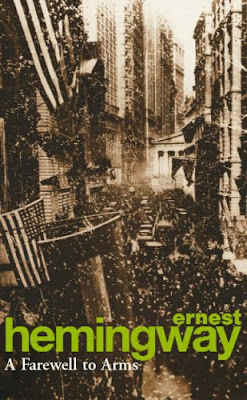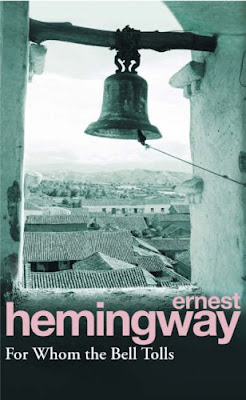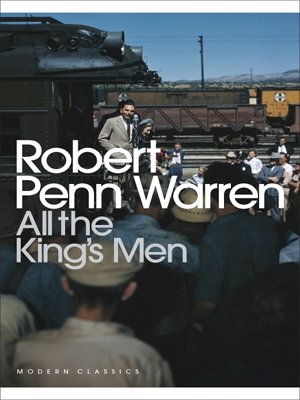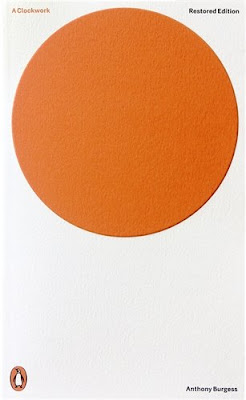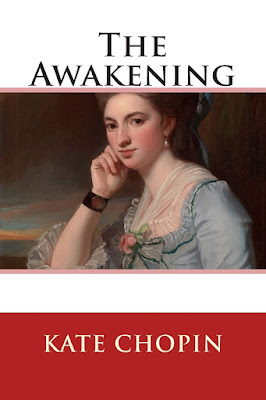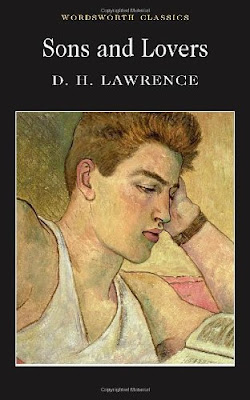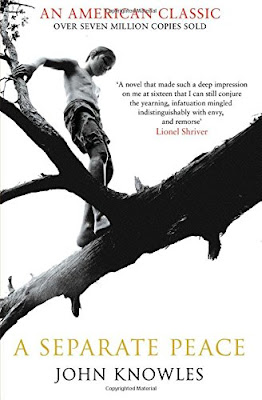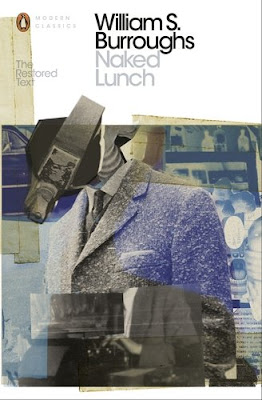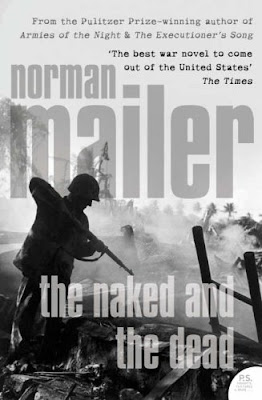See also 10 Most Challenged Books of 2014
The Great Gatsby
- Challenged at the Baptist College in Charleston, SC (1987) because of "language and sexual references in the book."
The Catcher in the Rye
Since its publication, this title has been a favorite target of censors.
- In 1960, a teacher in Tulsa, OK was fired for assigning the book to an eleventh grade English class. The teacher appealed and was reinstated by the school board, but the book was removed from use in the school.
- In 1963, a delegation of parents of high school students in Columbus, OH, asked the school board to ban the novel for being "anti-white" and "obscene." The school board refused the request.
- Removed from the Selinsgrove, PA suggested reading list (1975). Based on parents' objections to the language and content of the book, the school board voted 5-4 to ban the book. The book was later reinstated in the curriculum when the board learned that the vote was illegal because they needed a two-thirds vote for removal of the text.
- Challenged as an assignment in an American literature class in Pittsgrove, NJ (1977). After months of controversy, the board ruled that the novel could be read in the Advanced Placement class, but they gave parents the right to decide whether or not their children would read it.
- Removed from the Issaquah, WA optional High School reading list (1978).
- Removed from the required reading list in Middleville, MI (1979).
- Removed from the Jackson Milton school libraries in North Jackson, OH (1980).
- Removed from two Anniston, AL High school libraries (1982), but later reinstated on a restrictive basis.
- Removed from the school libraries in Morris, Manitoba (1982) along with two other books because they violate the committee's guidelines covering "excess vulgar language, sexual scenes, things concerning moral issues, excessive violence, and anything dealing with the occult."
- Challenged at the Libby, MT High School (1983) due to the "book's contents."
- Banned from English classes at the Freeport High School in De Funiak Springs, FL (1985) because it is "unacceptable" and "obscene."
- Removed from the required reading list of a Medicine Bow, WY Senior High School English class (1986) because of sexual references and profanity in the book.
- Banned from a required sophomore English reading list at the Napoleon, ND High School (1987) after parents and the local Knights of Columbus chapter complained about its profanity and sexual references.
- Challenged at the Linton-Stockton, IN High School (1988) because the book is "blasphemous and undermines morality."
- Banned from the classrooms in Boron, CA High School (1989) because the book contains profanity. Challenged at the Grayslake, IL Community High School (1991).
- Challenged at the Jamaica High School in Sidell, IL (1992) because the book contains profanities and depicts premarital sex, alcohol abuse, and prostitution.
- Challenged in the Waterloo, IA schools (1992) and Duval County, FL public school libraries (1992) because of profanity, lurid passages about sex, and statements defamatory to minorities, God, women, and the disabled.
- Challenged at the Cumberland Valley High School in Carlisle, PA (1992) because of a parent's objections that it contains profanity and is immoral.
- Challenged, but retained, at the New Richmond, WI High School (1994) for use in some English classes.
- Challenged as required reading in the Corona Norco, CA Unified School District (1993) because it is "centered around negative activity." The book was retained and teachers selected alternatives if students object to Salinger's novel.
- Challenged as mandatory reading in the Goffstown, NH schools (1994) because of the vulgar words used and the sexual exploits experienced in the book.
- Challenged at the St. Johns County Schools in St. Augustine, FL (1995).
- Challenged at the Oxford Hills High School in Paris, ME (1996). A parent objected to the use of the 'F' word.
- Challenged, but retained, at the Glynn Academy High School in Brunswick, GA (1997). A student objected to the novel's profanity and sexual references.
- Removed because of profanity and sexual situations from the required reading curriculum of the Marysville, CA Joint Unified School District (1997). The school superintendent removed it to get it "out of the way so that we didn't have that polarization over a book."
- Challenged, but retained on the shelves of Limestone County, AL school district (2000) despite objections about the book's foul language.
- Banned, but later reinstated after community protests at the Windsor Forest High School in Savannah, GA (2000). The controversy began in early 1999 when a parent complained about sex, violence, and profanity in the book that was part of an Advanced Placement English class.
- Removed by a Dorchester District 2 school board member in Summerville, SC (2001) because it "is a filthy, filthy book."
- Challenged by a Glynn County, GA (2001) school board member because of profanity. The novel was retained.
- Challenged in the Big Sky High School in Missoula, MT (2009).
The Grapes of Wrath
- Burned by the East St. Louis, IL Public Library (1939) and barred from the Buffalo, NY Public Library (1939) on the grounds that "vulgar words" were used. Banned in Kansas City, MO (1939).
- Banned in Kern County CA, the scene of Steinbeck's novel (1939).
- Banned in Ireland (1953).
- On Feb. 21, 1973, eleven Turkish book publishers went on trial before an Istanbul martial law tribunal on charges of publishing, possessing and selling books in violation of an order of the Istanbul martial law command. They faced possible sentences of between one month's and six months' imprisonment "for spreading propaganda unfavorable to the state" and the confiscation of their books. Eight booksellers were also on trial with the publishers on the same charge involving The Grapes of Wrath.
- Banned in Kanawha, IA High School classes (1980).
- Challenged in Vernon Verona Sherill, NY School District (1980).
- Challenged as required reading for Richford, VT (1981) High School English students due to the book's language and portrayal of a former minister who recounts how he took advantage of a young woman.
- Banned in Morris, Manitoba, Canada (1982).
- Removed from two Anniston, Ala. high school libraries (1982), but later reinstated on a restrictive basis.
- Challenged at the Cummings High School in Burlington, NC (1986) as an optional reading assignment because the "book is full of filth. My son is being raised in a Christian home and this book takes the Lord's name in vain and has all kinds of profanity in it." Although the parent spoke to the press, a formal complaint with the school demanding the book's removal was not filed.
- Challenged at the Moore County school system in Carthage, NC (1986) because the book contains the phase "God damn."
- Challenged in the Greenville, SC schools (1991) because the book uses the name of God and Jesus in a "vain and profane manner along with inappropriate sexual references."
- Challenged in the Union City, TN High School classes (1993).
To Kill a Mockingbird
- Challenged in Eden Valley, MN (1977) and temporarily banned due to words "damn" and "whore lady" used in the novel.
- Challenged in the Vernon Verona Sherill, NY School District (1980) as a "filthy, trashy novel."
- Challenged at the Warren, IN Township schools (1981) because the book does "psychological damage to the positive integration process" and "represents institutionalized racism under the guise of good literature." After unsuccessfully trying to ban Lee's novel, three black parents resigned from the township human relations advisory council.
- Challenged in the Waukegan, IL School District (1984) because the novel uses the word "nigger."
- Challenged in the Kansas City, MO junior high schools (1985). Challenged at the Park Hill, MO Junior High School (1985) because the novel "contains profanity and racial slurs." Retained on a supplemental eighth grade reading list in the Casa Grande, AZ Elementary School District (1985), despite the protests by black parents and the National Association for the Advancement of Colored People who charged the book was unfit for junior high use.
- Challenged at the Santa Cruz, CA Schools (1995) because of its racial themes. Removed from the Southwood High School Library in Caddo Parish, LA (1995) because the book's language and content were objectionable.
- Challenged at the Moss Point, MS School District (1996) because the novel contains a racial epithet. Banned from the Lindale, TX advanced placement English reading list (1996) because the book "conflicted with the values of the community."
- Challenged by a Glynn County, GA (2001) School Board member because of profanity. The novel was retained. Returned to the freshman reading list at Muskogee, OK High School (2001) despite complaints over the years from black students and parents about racial slurs in the text.
- Challenged in the Normal, IL Community High School's sophomore literature class (2003) as being degrading to African Americans.
- Challenged at the Stanford Middle School in Durham, NC (2004) because the 1961 Pulitzer Prize-winning novel uses the word "nigger."
- Challenged at the Brentwood, TN Middle School (2006) because the book contains “profanity” and “contains adult themes such as sexual intercourse, rape, and incest.” The complainants also contend that the book’s use of racial slurs promotes “racial hatred, racial division, racial separation, and promotes white supremacy.”
- Retained in the English curriculum by the Cherry Hill, NJ Board of Education (2007). A resident had objected to the novel’s depiction of how blacks are treated by members of a racist white community in an Alabama town during the Depression. The resident feared the book would upset black children reading it.
- Removed (2009) from the St. Edmund Campion Secondary School classrooms in Brampton Ontario, Canada because a parent objected to language used in the novel, including the word “nigger."
The Color Purple
- Challenged as appropriate reading for Oakland, CA High School honors class (1984) due to the work's "sexual and social explicitness" and its "troubling ideas about race relations, man's relationship to God, African history, and human sexuality." After nine months of haggling and delays, a divided Oakland Board of Education gave formal approval for the book's use.
- Rejected for purchase by the Hayward, CA school's trustee (1985) because of "rough language" and "explicit sex scenes."
- Removed from the open shelves of the Newport News, VA school library (1986) because of its "profanity and sexual references" and placed in a special section accessible only to students over the age of 18 or who have written permission from a parent. Challenged at the public libraries of Saginaw, MI (1989) because it was “too sexually graphic for a 12-year-old.”
- Challenged as a summer youth program reading assignment in Chattanooga, TN (1989) because of its language and "explicitness."
- Challenged as an optional reading assigned in Ten Sleep, WY schools (1990).
- Challenged as a reading assignment at the New Burn, NC High School (1992) because the main character is raped by her stepfather.
- Banned in the Souderton, PA Area School District (1992) as appropriate reading for 10th graders because it is "smut." Challenged on the curricular reading list at Pomperaug High School in Southbury, CT (1995) because sexually explicit passages aren’t appropriate high school reading.
- Retained as an English course reading assignment in the Junction City, OR high school (1995) after a challenge to Walker's Pulitzer Prize-winning novel caused months of controversy. Although an alternative assignment was available, the book was challenged due to "inappropriate language, graphic sexual scenes, and book's negative image of black men."
- Challenged at the St. Johns County Schools in St. Augustine, FL (1995). Retained on the Round Rock, TX Independent High School reading list (1996) after a challenge that the book was too violent.
- Challenged, but retained, as part of the reading list for Advanced Placement English classes at Northwest High Schools in High Point, NC (1996). The book was challenged because it is "sexually graphic and violent."
- Removed from the Jackson County, WV school libraries (1997) along with sixteen other titles. Challenged, but retained as part of a supplemental reading list at the Shawnee School in Lima, OH (1999). Several parents described its content as vulgar and "X-rated."
- Removed from the Ferguson High School library in Newport News, VA (1999). Students may request and borrow the book with parental approval.
- Challenged, along with seventeen other titles in the Fairfax County, VA elementary and secondary libraries (2002), by a group called Parents Against Bad Books in Schools. The group contends the books "contain profanity and descriptions of drug abuse, sexually explicit conduct, and torture.”
- Challenged in Burke County (2008) schools in Morganton, NC by parents concerned about the homosexuality, rape, and incest portrayed in the book.
Ulysses
- Burned in the U.S. (1918), Ireland (1922), Canada (1922), England (1923) and banned in England (1929).
Beloved
- Challenged at the St. Johns County Schools in St. Augustine, FL (1995). Retained on the Round Rock, TX Independent High School reading list (1996) after a challenge that the book was too violent.
- Challenged by a member of the Madawaska, ME School Committee (1997) because of the book's language. The 1987 Pulitzer Prize winning novel has been required reading for the advanced placement English class for six years.
- Challenged in the Sarasota County, FL schools (1998) because of sexual material. Retained on the Northwest Suburban High School District 214 reading listing in Arlington Heights, IL (2006), along with eight other challenged titles. A board member, elected amid promises to bring her Christian beliefs into all board decision-making, raised the controversy based on excerpts from the books she’d found on the Internet.
- Challenged in the Coeur d’Alene School District, ID (2007). Some parents say the book, along with five others, should require parental permission for students to read them.
- Pulled from the senior Advanced Placement (AP) English class at Eastern High School in Louisville, KY (2007) because two parents complained that the Pulitzer Prize-winning novel about antebellum slavery depicted the inappropriate topics of bestiality, racism, and sex. The principal ordered teachers to start over with The Scarlet Letter by Nathaniel Hawthorne in preparation for upcoming AP exams.
The Lord of the Flies
- Challenged at the Dallas, TX Independent School District high school libraries (1974).
- Challenged at the Sully Buttes, SD High School (1981). Challenged at the Owen, NC High School (1981) because the book is "demoralizing inasmuch as it implies that man is little more than an animal."
- Challenged at the Marana, AZ High School (1983) as an inappropriate reading assignment.
- Challenged at the Olney, TX Independent School District (1984) because of "excessive violence and bad language." A committee of the Toronto, Canada Board of Education ruled on June 23, 1988, that the novel is "racist and recommended that it be removed from all schools." Parents and members of the black community complained about a reference to "niggers" in the book and said it denigrates blacks.
- Challenged in the Waterloo, IA schools (1992) because of profanity, lurid passages about sex, and statements defamatory to minorities, God, women and the disabled.
- Challenged, but retained on the ninth-grade accelerated English reading list in Bloomfield, NY (2000).
1984
- Challenged in the Jackson County, FL (1981) because Orwell's novel is "pro-communist and contained explicit sexual matter."
Lolita
- Banned as obscene in France (1956-1959), in England (1955-59), in Argentina (1959), and in New Zealand (1960). The South African Directorate of Publications announced on November 27, 1982, that Lolita has been taken off the banned list, eight years after a request for permission to market the novel in paperback had been refused.
- Challenged at the Marion-Levy Public Library System in Ocala, FL (2006). The Marion County commissioners voted to have the county attorney review the novel that addresses the themes of pedophilia and incest, to determine if it meets the state law’s definition of “unsuitable for minors.”
Of Mice and Men
- Banned in Ireland (1953); Syracuse, IN (1974); Oil City, PA (I977); Grand Blanc, MI (1979); Continental, OH (1980) and other communities.
- Challenged in Greenville, SC (1977) by the Fourth Province of the Knights of the Ku Klux KIan; Vernon Verona Sherill, NY School District (1980); St. David, AZ (1981) and Tell City, IN (1982) due to "profanity and using God's name in vain."
- Banned from classroom use at the Scottsboro, AL Skyline High School (1983) due to "profanity." The Knoxville, TN School Board chairman vowed to have "filthy books" removed from Knoxville's public schools (1984) and picked Steinbeck's novel as the first target due to "its vulgar language."
- Reinstated at the Christian County, KY school libraries and English classes (1987) after being challenged as vulgar and offensive.
- Challenged in the Marion County, WV schools (1988), at the Wheaton Warrenville, IL Middle School (1988), and at the Berrien Springs, MI High School (1988) because the book contains profanity.
- Removed from the Northside High School in Tuscaloosa, AL (1989) because the book "has profane use of God's name."
- Challenged as a summer youth program reading assignment in Chattanooga, TN (1989) because "Steinbeck is known to have had an anti business attitude." In addition, "he was very questionable as to his patriotism." Removed from all reading lists and collected at the White Chapel High School in Pine Bluff, AR (1989) because of objections to language.
- Challenged as appropriate for high school reading lists in the Shelby County, TN school system (1989) because the novel contains "offensive language."
- Challenged, but retained in a Salina, KS (1990) tenth grade English class despite concerns that it contains "profanity" and "takes the Lord's name in vain."
- Challenged by a Fresno, CA (1991) parent as a tenth grade English college preparatory curriculum assignment, citing profanity" and "racial slurs." The book was retained, and the child of the objecting parent was provided with an alternative reading assignment. Challenged in the Rivera, TX schools (1990) because it contains profanity.
- Challenged as curriculum material at the Ringgold High School in Carroll Township, PA (1991) because the novel contains terminology offensive to blacks. Removed and later returned to the Suwannee, FL High School library (1991) because the book is "indecent"
- Challenged at the Jacksboro, TN High School (1991) because the novel contains "blasphemous" language, excessive cursing, and sexual overtones.
- Challenged as required reading in the Buckingham County, VA schools (1991) because of profanity. In 1992 a coalition of community members and clergy in Mobile, AL requested that local school officials form a special textbook screening committee to "weed out objectionable things." Steinbeck's novel was the first target because it contains "profanity" and "morbid and depressing themes."
- Temporarily removed from the Hamilton, OH High School reading list (1992) after a parent complained about its vulgarity and racial slurs.
- Challenged in the Waterloo, IA schools (1992) and the Duval County, FL public school libraries (1992) because of profanity, lurid passages about sex, and statements defamatory to minorities, God, women, and the disabled.
- Challenged at the Modesto, CA High School as recommended reading (1992) because of "offensive and racist language." The word "nigger" appears in the book.
- Challenged at the Oak Hill High School in Alexandria, LA (1992) because of profanity. Challenged as an appropriate English curriculum assignment at the Mingus, AZ Union High School (1993) because of "profane language, moral statement, treatment of the retarded, and the violent ending."
- Pulled from a classroom by the Putnam County, TN school superintendent (1994) "due to the language." Later, after discussions with the school district counsel, it was reinstated.
- The book was challenged in the Loganville, GA High School (1994) because of its "vulgar language throughout."
- Challenged in the Galena, KS school library (1995) because of the book's language and social implications.
- Retained in the Bemidji, MN schools (1995) after challenges to the book's "objectionable" language. Challenged at the Stephens County High School library in Toccoa, GA (I995) because of "curse words." The book was retained.
- Challenged, but retained in a Warm Springs, VA High School (1995) English class. Banned from the Washington Junior High School curriculum in Peru, IL (1997) because it was deemed "age inappropriate."
- Challenged, but retained, in the Louisville, OH high school English classes (1997) because of profanity.
- Removed, restored, restricted, and eventually retained at the Bay County schools in Panama City, FL (1997). A citizen group, the 100 Black United, Inc., requested the novel's removal and "any other inadmissible literary books that have racial slurs in them, such as the using of the word 'Nigger.'"
- Challenged as a reading list assignment for a ninth grade literature class, but retained at the Sauk Rapids Rice High School in St. Cloud, MN (1997). A parent complained that the book's use of racist language led to racist behavior and racial harassment.
- Challenged in O'Hara Park Middle School classrooms in Oakley, CA (1998) because it contains racial epithets.
- Challenged, but retained, in the Bryant, AR school library (1998) because of a parent's complaint that the book "takes God's name in vain 15 times and uses Jesus's name lightly."
- Challenged at the Barron, WI School District (1998). Challenged, but retained in the sophomore curriculum at West Middlesex, PA High School (1999) despite objections to the novel's profanity.
- Challenged in the Tomah, WI School District (1999) because the novel is violent and contains obscenities.
- Challenged as required reading at the high school in Grandville, MI (2002) because the book "is full of racism, profanity, and foul language."
- Banned from the George County, MS schools (2002) because of profanity. Challenged in the Normal, IL Community High Schools (2003) because the books contains "racial slurs, profanity, violence, and does not represent traditional values." An alternative book, Steinbeck's The Pearl, was offered but rejected by the family challenging the novel. The committee then recommended The House on Mango Street and The Way to Rainy Mountain as alternatives.
- Retained in the Greencastle-Antrim, PA (2006) tenth-grade English classes. A complaint was filed because of “racial slurs” and profanity used throughout the novel. The book has been used in the high school for more than thirty years, and those who object to its content have the option of reading an alternative reading.
- Challenged at the Newton, IA High School (2007) because of concerns about profanity and the portrayal of Jesus Christ. Newton High School has required students to read the book since at least the early 1980s. In neighboring Des Moines, it is on the recommended reading list for ninth-grade English, and it is used for some special education students in the eleventh and twelfth grades.
- Retained in the Olathe, KS ninth grade curriculum (2007) despite a parent calling the novel a “worthless, profanity-riddled book” which is “derogatory towards African Americans, women, and the developmentally disabled.”
Catch-22
- Banned in Strongsville, OH (1972), but the school board's action was overturned in 1976 by a U.S. District Court in Minarcini v. Strongsville City School District.
- Challenged at the Dallas, TX Independent School District high school libraries (1974); in Snoqualmie, WA (1979) because of its several references to women as "whores."
Brave New World
- Banned in Ireland (1932). Removed from classrooms in Miller, MO (1980), because it makes promiscuous sex "look like fun."
- Challenged frequently throughout the U.S.as required reading. Challenged as required reading at the Yukon, OK High School (1988) because of "the book's language and moral content."
- Challenged as required reading in the Corona-Norco, CA Unified School District (1993) because it is "centered around negative activity." Specifically, parents objected that the characters' sexual behavior directly opposed the health curriculum, which taught sexual abstinence until marriage. The book was retained, and teachers selected alternatives if students object to Huxley's novel.
- Removed from the Foley, AL High School Library (2000) pending review, because a parent complained that its characters showed contempt for religion, marriage, and family. The parent complained to the school and to Alabama Governor Don Siegelman.
- Challenged, but retained in the South Texas Independent School District in Mercedes, TX (2003). Parents objected to the adult themes—sexuality, drugs, suicide—that appeared in the novel. Huxley's book was part of the summer Science Academy curriculum. The board voted to give parents more control over their children's choices by requiring principals to automatically offer an alternative to a challenged book.
- Retained in the Coeur D’Alene, ID School District (2008) despite objections that the book has too many references to sex and drug use.
Animal Farm
- A Wisconsin survey revealed in 1963 that the John Birch Society had challenged the novel's use; it objected to the words "masses will revolt." In 1968, the New York State English Council's Committee on Defense Against Censorship conducted a comparable study in New York State English classrooms. Its findings identified the novel on its list of "problem books"; the reason cited was that "Orwell was a communist."
- Suppressed from being displayed at the 1977 Moscow, Russia International Book Fair.
- A survey of censorship challenges in the schools, conducted in DeKalb County for the period of 1979 to 1982, revealed that the novel had been objected to for its political theories.
- Banned from Bay County's four middle schools and three high schools in Panama City, FL by the Bay County school superintendent in 1987. After 44 parents filed a suit against the district claiming that its instructional aids policy denies constitutional rights, the Bay County School Board reinstated the book, along with sixty-four others banned.
- Banned from schools in the United Arab Emirates, along with 125 others in 2002. The Ministry of Education banned it on the grounds that it contains written or illustrated material that contradicts Islamic and Arab values—in this text, pictures of alcoholic drinks, pigs, and other "indecent images."
The Sun Also Rises
- Banned in Boston, MA (1930), Ireland (1953), Riverside, CA (1960), San Jose, CA (1960).
- Burned in Nazi bonfires in Germany (1933).
As I Lay Dying
- Banned in the Graves County School District in Mayfield, KY (1986) because it contains "offensive and obscene passages referring to abortion and used God's name in vain." The decision was reversed a week later after intense pressure from the ACLU and considerable negative publicity.
- Challenged as a required reading assignment in an advanced English class of Pulaski County High School in Somerset, KY (1987) because the book contains "profanity and a segment about masturbation."
- Challenged, but retained, in the Carroll County, MD schools (1991). Two school board members were concerned about the book's coarse language and dialect. Banned at Central High School in Louisville, KY (1994) temporarily because the book uses profanity and questions the existence of God.
A Farewell to Arms
- The June 1929 issue of Scribner's Magazine, which ran Hemingway's novel, was banned in Boston, MA (1929).
- Banned in Italy (1929) because of its painfully accurate account of the Italian retreat from Caporetto, Italy.
- Burned by the Nazis in Germany (1933).
- Banned in Ireland (1939). Challenged at the Dallas, TX Independent School District high school libraries (1974).
- Challenged at the Vernon-Verona-Sherill, NY School District (1980) as a "sex novel."
Their Eyes Were Watching God
- Challenged for sexual explicitness, but retained on the Stonewall Jackson High School's academically advanced reading list in Brentsville, VA (1997). A parent objected to the novel's language and sexual explicitness.
Invisible Man
- Excerpts banned in Butler, PA (1975).
- Removed from the high school English reading list in St. Francis, WI (1975).
- Retained in the Yakima, WA schools (1994) after a five-month dispute over what advanced high school students should read in the classroom. Two parents raised concerns about profanity and images of violence and sexuality in the book and requested that it be removed from the reading list.
Song of Solomon
- Challenged, but retained, in the Columbus, OH schools (1993). The complainant believed that the book contains language degrading to blacks, and is sexually explicit.
- Removed from required reading lists and library shelves in the Richmond County, GA. School District (1994) after a parent complained that passages from the book are "filthy and inappropriate."
- Challenged at the St. Johns County Schools in St. Augustine, FL (1995). Removed from the St. Mary's County, MD schools' approved text list (1998) by the superintendent, overruling a faculty committee recommendation. Complainants referred to the novel as "filth," "trash," and "repulsive."
- Reinstated in the Shelby, MI school Advanced Placement English curriculum (2009), but parents are to be informed in writing and at a meeting about the book’s content. Students not wanting to read the book can choose an alternative without academic penalty. The superintendent had suspended the book from the curriculum.
Gone with the Wind
- Banned from Anaheim, CA Union High School District English classrooms (1978).
- Challenged in Waukegan, IL School District (1984) because the novel uses the word "nigger."
Native Son
- Challenged in Goffstown, NH (1978); Elmwood Park, NJ (1978) due to "objectionable" language; and North Adams, MA (1981) due to the book's "violence, sex, and profanity."
- Challenged at the Berrian Springs, MI High School in classrooms and libraries (1988) because the novel is "vulgar, profane, and sexually explicit."
- Retained in the Yakima, WA schools (1994) after a five-month dispute over what advanced high school students should read in the classroom. Two parents raised concerns about profanity and images of violence and sexuality in the book and requested that it be removed from the reading list.
- Challenged as part of the reading list for Advanced Placement English classes at Northwest High School in High Point, NC (1996). The book was challenged because it is "sexually graphic and violent."
- Removed from Irvington High School in Fremont, CA (1998) after a few parents complained the book was unnecessarily violent and sexually explicit.
- Challenged in the Hamilton High School curriculum in Fort Wayne, IN (1998) because of the novel's graphic language and sexual content.
One Flew Over the Cuckoo's Nest
- Challenged in the Greeley, CO public school district (1971) as a non-required American Culture reading.
- In 1974, five residents of Strongsville, OH, sued the board of education to remove the novel. Labeling it "pornographic," they charged the novel "glorifies criminal activity, has a tendency to corrupt juveniles and contains descriptions of bestiality, bizarre violence, and torture, dismemberment, death, and human elimination."
- Removed from public school libraries in Randolph, NY, and Alton, OK (1975).
- Removed from the required reading list in Westport, MA (1977).
- Banned from the St. Anthony, ID Freemont High School classrooms (1978) and the instructor fired. The teacher sued. A decision in the case—Fogarty v. Atchley—was never published.
- Challenged at the Merrimack, NH High School (1982).
- Challenged as part of the curriculum in an Aberdeen, WA High School honors English class (1986) because the book promotes "secular humanism." The school board voted to retain the title.
- Challenged at the Placentia-Yorba Linda, CA Unified School District (2000) after complaints by parents stated that teachers "can choose the best books, but they keep choosing this garbage over and over again."
Slaughterhouse Five
- Challenged in many communities, but burned in Drake, ND (1973).
- Banned in Rochester, MI because the novel "contains and makes references to religious matters" and thus fell within the ban of the establishment clause. An appellate court upheld its usage in the school in Todd v Rochester Community Schools, 41 Mich. App. 320, 200 N. W 2d 90 (1972).
- Banned in Levittown, NY (1975), North Jackson, OH (1979), and Lakeland, FL (1982) because of the "book's explicit sexual scenes, violence, and obscene language."
- Barred from purchase at the Washington Park High School in Racine, WI (1984) by the district administrative assistant for instructional services.
- Challenged at the Owensboro, KY High School library (1985) because of "foul language, a section depicting a picture of an act of bestiality, a reference to 'Magic Fingers' attached to the protagonist's bed to help him sleep, and the sentence: 'The gun made a ripping sound like the opening of the fly of God Almighty."'
- Restricted to students who have parental permission at the four Racine, WI Unified District high school libraries (1986) because of "language used in the book, depictions of torture, ethnic slurs, and negative portrayals of women."
- Challenged at the LaRue County, KY High School library (1987) because "the book contains foul language and promotes deviant sexual behavior.”
- Banned from the Fitzgerald, GA schools (1987) because it was filled with profanity and full of explicit sexual references:' Challenged in the Baton Rouge, LA public high school libraries (1988) because the book is "vulgar and offensive:'
- Challenged in the Monroe, MI public schools (1989) as required reading in a modem novel course for high school juniors and seniors because of the book's language and the way women are portrayed.
- Retained on the Round Rock, TX Independent High School reading list (1996) after a challenge that the book was too violent.
- Challenged as an eleventh grade summer reading option in Prince William County, VA (1998) because the book "was rife with profanity and explicit sex:"
- Removed as required reading for sophomores at the Coventry, RI High School (2000) after a parent complained that it contains vulgar language, violent imagery, and sexual content.
- Retained on the Northwest Suburban High School District 214 reading list in Arlington Heights, IL (2006), along with eight other challenged titles. A board member, elected amid promises to bring her Christian beliefs into all board decision-making, raised the controversy based on excerpts from the books she'd found on the internet.
- Challenged in the Howell, MI High School (2007) because of the book's strong sexual content. In response to a request from the president of the Livingston Organization for Values in Education, or LOVE, the county's top law enforcement official reviewed the books to see whether laws against distribution of sexually explicit materials to minors had been broken. "After reading the books in question, it is clear that the explicit passages illustrated a larger literary, artistic or political message and were not included solely to appeal to the prurient interests of minors," the county prosecutor wrote. "Whether these materials are appropriate for minors is a decision to be made by the school board, but I find that they are not in violation of criminal laws."
For Whom the Bell Tolls
- Declared non-mailable by the U.S. Post Office (1940). On Feb. 21, 1973, eleven Turkish book publishers went on trial before an Istanbul martial law tribunal on charges of publishing, possessing, and selling books in violation of an order of the Istanbul martial law command. They faced possible sentences of between one month's and six months’ imprisonment "for spreading propaganda unfavorable to the state" and the confiscation of their books. Eight booksellers also were on trial with the publishers on the same charge involving For Whom the Bell Tolls.
The Call of the Wild
- Banned in Italy (1929), Yugoslavia (1929), and burned in Nazi bonfires (1933).
Go Tell It on the Mountain
- Challenged as required reading in the Hudson Falls, NY schools (1994) because the book has recurring themes of rape, masturbation, violence, and degrading treatment of women.
- Challenged as a ninth-grade summer reading option in Prince William County, VA (1988) because the book is "rife with profanity and explicit sex."
All the King's Men
Challenged at the Dallas, TX Independent School District high school libraries (1974).
The Lord of the Rings
- Burned in Alamagordo, NM (2001) outside Christ Community Church along with other Tolkien novels as satanic.
The Jungle
- Banned from public libraries in Yugoslavia (1929). Burned in the Nazi bonfires because of Sinclair's socialist views (1933).
- Banned in East Germany (1956) as inimical to communism.
- Banned in South Korea (1985).
Lady Chatterley's Lover
- Banned by U.S. Customs (1929).
- Banned in Ireland (1932), Poland (1932), Australia (1959), Japan (1959), India (1959).
- Banned in Canada (1960) until 1962.
- Dissemination of Lawrence’s novel has been stopped in China (1987) because the book “will corrupt the minds of young people and is also against the Chinese tradition.”
A Clockwork Orange
- In 1973 a bookseller in Orem, UT was arrested for selling the novel. Charges were later dropped, but the book seller was forced to close the store and relocate to another city.
- Removed from Aurora, CO high school (1976) due to "objectionable" language and from high school classrooms in Westport, MA (1977) because of "objectionable" language.
- Removed from two Anniston, AL High school libraries (1982), but later reinstated on a restricted basis.
The Awakening
- Retained on the Northwestern Suburban High School District 214 reading list in Arlington Heights, IL along with eight other challenged titles in 2006. A board member, elected amid promises to bring her Christian beliefs into all board decision-making, raised the controversy based on excerpts from the books she'd found on the Internet.
- First published in 1899, this novel so disturbed critics and the public that it was banished for decades afterward.
In Cold Blood
- Banned, but later reinstated after community protests at the Windsor Forest High School in Savannah, GA (2000). The controversy began in early 1999 when a parent complained about sex, violence, and profanity in the book that was part of an Advanced Placement English Class.
Satanic Verses
- Banned in Pakistan, Saudi Arabia, Egypt, Somalia, Sudan, Bangladesh, Malaysia, Quatar, Indonesia, South Africa, and India because of its criticism of Islam.
- Burned in West Yorkshire, England (1989) and temporarily withdrawn from two bookstores on the advice of police who took threats to staff and property seriously.
- In Pakistan five people died in riots against the book. Another man died a day later in Kashmir.
- Ayatollah Khomeni issued a fatwa or religious edict, stating, "I inform the proud Muslim people of the world that the author of the Satanic Verses, which is against Islam, the prophet, and the Koran, and all those involved in its publication who were aware of its content, have been sentenced to death."
- Challenged at the Wichita, KS Public Library (1989) because the book is "blasphemous to the prophet Mohammed."
- In Venezuela, owning or reading it was declared a crime under penalty of 15 months' imprisonment.
- In Japan, the sale of the English-language edition was banned under the threat of fines.
- The governments of Bulgaria and Poland also restricted its distribution.
- In 1991, in separate incidents, Hitoshi Igarashi, the Japanese translator, was stabbed to death and its Italian translator, Ettore Capriolo, was seriously wounded. In 1993 William Nygaard, its Norwegian publisher, was shot and seriously injured.
Sophie's Choice
- Banned in South Africa in 1979.
- Returned to La Mirada High School library (CA) in 2002 after a complaint about its sexual content prompted the school to pull the award-winning novel about a tormented Holocaust survivor.
Sons and Lovers
- In 1961 an Oklahoma City group called Mothers United for Decency hired a trailer, dubbed it "smutmobile," and displayed books deemed objectionable, including Lawrence's novel.
Cat's Cradle
- The Strogsville, Ohio School Board (1972) voted to withdraw this title from the school library; this action was overturned in 1976 by a U.S. District Court in Minarcini v. Strongsville City School District, 541 F. 2d 577 (6th Cir. 1976).
- Challenged at Merrimack, NH High School (1982).
A Separate Peace
- Challenged in Vernon-Verona-Sherill, NY School District (1980) as a "filthy, trashy sex novel."
- Challenged at the Fannett-Metal High School in Shippensburg, PA (1985) because of its allegedly offensive language.
- Challenged as appropriate for high school reading lists in the Shelby County, TN school system (1989) because the novel contains "offensive language."
- Challenged, but retained in the Champaign, IL high school English classes (1991) despite claims that “unsuitable language” makes it inappropriate.
- Challenged by the parent of a high school student in Troy, IL (1991) citing profanity and negative attitudes. Students were offered alternative assignments while the school board took the matter under advisement, but no further action was taken on the complaint.
- Challenged at the McDowell County, NC schools (1996) because of "graphic language."
Naked Lunch
- Found obscene in Boston, MA Superior Court (1965). The finding was reversed by the State Supreme Court the following year.
Brideshead Revisited
- Alabama Representative Gerald Allen (R-Cottondale) proposed legislation that would prohibit the use of public funds for the "purchase of textbooks or library materials that recognize or promote homosexuality as an acceptable lifestyle." The bill also proposed that novels with gay protagonists and college textbooks that suggest homosexuality is natural would have to be removed from library shelves and destroyed. The bill would impact all Alabama school, public, and university libraries. While it would ban books like Heather Has Two Mommies, it could also include classic and popular novels with gay characters such as Brideshead Revisited, The Color Purple or The Picture of Dorian Gray (2005).
Women in Love
- Seized by John Summers of the New York Society for the Suppression of Vice and declared obscene (1922).
The Naked and the Dead
- Banned in Canada (1949) and Australia (1949).
Tropic of Cancer
- Banned from U.S. Customs (1934).
- The U.S. Supreme Court found the novel not obscene (1964). Banned in Turkey (1986).
An American Tragedy
- Banned in Boston, MA (1927) and burned by the Nazis in Germany (1933) because it "deals with low love affairs."
Rabbit, Run
- Banned in Ireland in 1962 because the Irish Board of Censors found the work "obscene" and "indecent," objecting particularly to the author's handling of the characters' sexuality, the "explicit sex acts" and "promiscuity." The work was officially banned from sales in Ireland until the introduction of the revised Censorship Publications Bill in 1967.
- Restricted to high school students with parental permission in the six Aroostock County, ME community high school libraries (1976) because of passages in the book dealing with sex and an extramarital affair.
- Removed from the required reading list for English class at the Medicine Bow, WY Junior High School (1986) because of sexual references and profanity in the book.
Source: Banned & Challenged Books

